

Understanding Minnesota’s background check laws is crucial for making informed and legal decisions. Knowing these rules ensures compliance whether you’re an employer, landlord, or just curious about someone’s history.
This article covers what Minnesota background checks involve, how to get them, and the relevant laws. By the end, you’ll feel confident in handling background checks in Minnesota.
Need a Personal Background Check?
A Minnesota background check provides a detailed review of someone’s history. It’s commonly used for various purposes such as employment, apartment rental, or license applications. These checks examine criminal records, employment history, driving records, and other relevant details.
Employers conduct these checks to ensure they hire reliable individuals, while landlords use them to assess potential tenants. Understanding the components of a background check helps individuals and organizations make informed decisions.
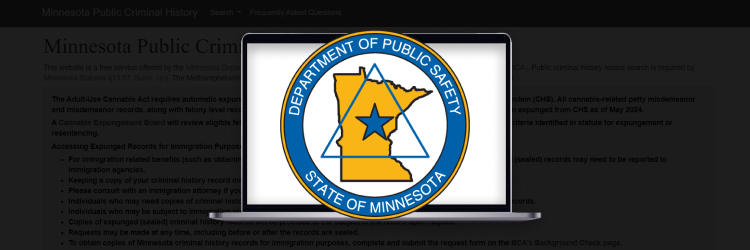
Here’s a step-by-step guide to help you through it:
These steps will help you navigate the process of obtaining a background check in Minnesota efficiently and in compliance with the relevant laws.
Here are some common types of background checks and what information are included:
Civil Court Searches
Civil court searches provide information on any legal disputes an individual has been involved in, including lawsuits, small claims court cases, and family court matters like divorces and custody disputes. Employers find these searches useful for understanding if a potential hire has faced significant legal challenges.
Employment Verification
Employment verification confirms an individual’s past job titles, dates of employment, and occasionally their reasons for leaving previous positions. This process is essential for employers to verify the accuracy of information provided on a resume and to assess the candidate’s work history and reliability
Driving Record Checks
Driving record checks reveal the individual’s history of traffic violations, accidents, and any suspensions or revocations of their driver’s license. These checks are particularly important for positions that involve driving. Employers can use Minnesota driving records to ensure that potential employees have a clean driving history.
Education Verification
Education verification confirms the degrees or certifications claimed by an individual, including verifying attendance dates and the authenticity of the educational institutions listed on a resume. This process ensures the accuracy of educational credentials provided by applicants.
Drug Testing
Drug testing involves screening individuals for the presence of illegal substances. It’s often required in safety-sensitive industries like transportation, healthcare, and manufacturing to ensure a drug-free workplace and maintain safety standards.
Criminal Background Checks
Criminal background checks are a fundamental part of the background check process. They reveal any criminal records, including felonies, misdemeanors, and arrests. Minnesota criminal background checks help employers ensure that they are hiring individuals with no serious criminal past that could pose a risk to the workplace or clientele.
Credit Background Checks
Credit background checks give an overview of an individual’s financial responsibility. They show credit history, including debts, bankruptcies, and payment history. These credit checks are often used for jobs involving financial duties to assess the candidate’s financial stability and reliability.
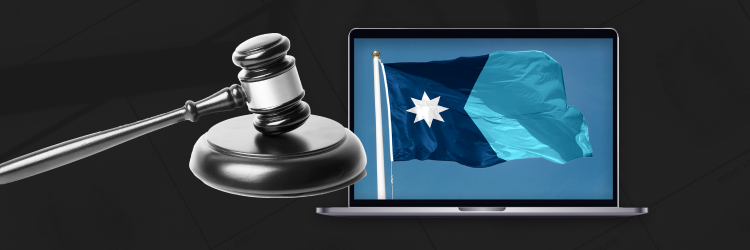
The Government Data Practices Act regulates the collection, storage, use, and sharing of government data in Minnesota. This law ensures that personal data collected during background checks is handled with care and confidentiality.
It requires that individuals are informed about the purpose and use of their data and allows them to access and correct their information.
Chapter 181 covers various employment-related issues, including background checks. It outlines what employers must do when requesting background screening and using background check information. This law ensures that background checks are done fairly and that employees know their rights throughout the process. It also addresses wage disclosure and working conditions.
This law is important for individuals with criminal records. It aims to help criminal offenders find jobs and ensure they are not unfairly denied employment because of their past. Chapter 364 restricts employers from asking about criminal histories until a conditional offer of employment has been made, supporting fair hiring practices.
Sections 299C.68 to 299C.71 govern the handling of criminal history data. These laws dictate how criminal records are collected, maintained, and shared by the Minnesota Bureau of Criminal Apprehension (BCA). They ensure that individuals can access their criminal history data, challenge inaccuracies, and understand how this information is used in background checks.
The Minnesota Fair Hiring Practices Act promotes equal employment opportunities. This law prohibits employers from asking about an applicant’s criminal history until the applicant has been selected for an interview or received a conditional job offer.
Delaying the consideration of criminal records helps prevent discrimination and supports the rehabilitation and reintegration of individuals with past convictions.
The Minnesota Human Rights Act is an anti-discrimination law that protects individuals from discrimination in various aspects of public life, including employment. This law prohibits discrimination based on race, color, creed, religion, national origin, sex, marital status, disability, public assistance status, age, sexual orientation, and familial status.
In the context of background checks, this law ensures that all individuals are treated fairly and without bias during the hiring process.
The Federal Fair Credit Reporting Act (FCRA) ensures the accuracy, fairness, and privacy of information in consumer reports. Employers planning to conduct background checks must understand their obligations under the FCRA.
In Minnesota, the FCRA is aligned with the Minnesota Data Practices Act, which adds local requirements. Key aspects of the FCRA include:
Background checks in Minnesota have different look-back periods based on the type of check:
The turnaround time for background checks in Minnesota varies based on the type of check and the method used:
The cost of conducting a background check in Minnesota can vary based on the type and depth of the check required:
Certain offenses and records can disqualify individuals from specific positions in Minnesota. Here are some of the key disqualifying factors:
You can request a official background check directly from the Minnesota Bureau of Criminal Apprehension (BCA). The BCA offers fingerprint-based and name-based background checks, providing official and accurate criminal history information.
Additionally, you can request a basic background check for personal purposes using background check sites. These sites gather information from different states and provide reports with useful insights.
Below are some trusted websites to run background checks for personal purposes, each with its own set of pros and cons:
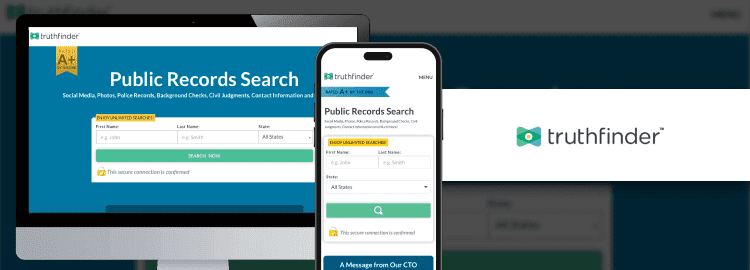
TruthFinder is a leading service for thorough background checks, offering extensive details by scanning both public and private records. The platform retrieves data from hundreds of millions of sources, including social media and confidential records, and delivers comprehensive reports in minutes. TruthFinder is especially useful for uncovering hard-to-find information like social media profiles, arrest records, and unknown contact details.
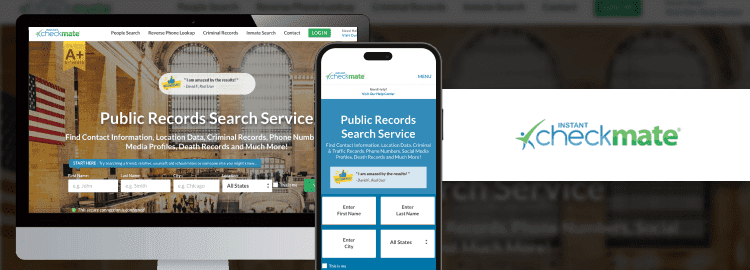
Instant Checkmate offers a fast and efficient way to conduct online background checks. The service reveals extensive information, including traffic records, court documents, and alternate names. It excels at quickly identifying a person’s history of violence by retrieving arrest records and other relevant data.
Though it is not a Consumer Reporting Agency (CRA) and cannot be used for employment or tenant screening, InstantCheckMate is highly effective for those needing rapid and detailed background checks.
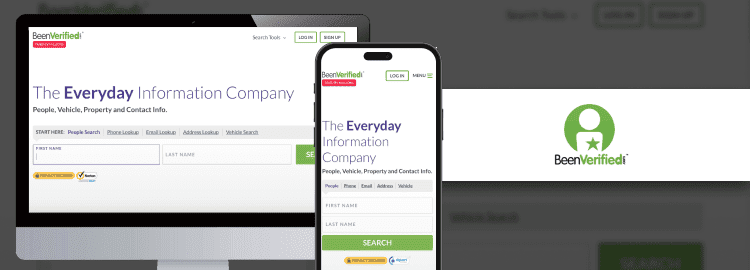
BeenVerified offers affordable and easy access to public records, serving over 10 million users and processing 38 million searches monthly. It compiles data from federal, state, county, and local records, providing detailed and easy-to-understand reports. BeenVerified is ideal for checking on others, monitoring public records, or tracking various personal details.
Understanding the background check laws in Minnesota is essential for making informed and lawful decisions. Employers, landlords, and individuals interested in someone’s history will benefit from knowing these regulations, helping to ensure compliance and better choices. Comprehensive background checks provide the necessary information to make decisions with confidence.
Using reputable background check services is important for obtaining accurate and detailed information. These services streamline the process, making it easier and more efficient to gather the data you need.
With the right tools and knowledge of the relevant local laws here, you can ensure you are well-prepared and informed when conducting background checks in Minnesota.
Understanding the background check laws in Minnesota is essential for making informed and lawful decisions. Employers, landlords, and individuals interested in someone’s history will benefit from knowing these regulations, helping to ensure compliance and better choices. Comprehensive background checks provide the necessary information to make decisions with confidence.
Using reputable background check services is important for obtaining accurate and detailed information. These services streamline the process, making it easier and more efficient to gather the data you need.
With the right tools and knowledge of the relevant local laws here, you can ensure you are well-prepared and informed when conducting background checks in Minnesota.
Disclaimer: Some background check sites are just for personal use and conducting basic people searches. Others, such as those used by potential employers, must comply with the Fair Credit Reporting Act (FCRA). This law limits the types of information you can find on other people. If you’re an employer or landlord using a background check for professional purposes, be sure to choose a site that’s FCRA compliant. Using a people search site that doesn’t comply with the FCRA to screen potential tenants, domestic workers or employees is illegal.
The information available on our website may not be 100% accurate, complete, or up to date, so do not use it as a substitute for your own due diligence, especially if you have concerns about a person’s criminal history. The services we mention do not make any representation or warranty about the accuracy of the information available through our website or about the character or integrity of the person about whom you inquire. For more information, please review each service’s Terms of Use.